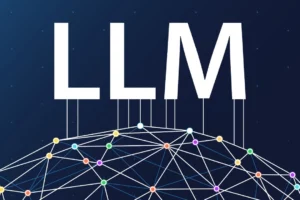In the realm of software development, quality is paramount. Yet, traditional QA processes often feel like a never-ending game of whack-a-mole, with testers manually creating test cases and chasing down elusive bugs. But what if we could harness the power of artificial intelligence (AI) to automate these tasks, making QA smarter, faster, and more efficient?
AI-Powered QA: The Rise of the Machines
Imagine a world where AI assists in test case generation, intelligently identifies potential defects, and even learns from historical testing data to predict future problem areas. This is the future of software quality assurance, and it’s already taking shape in several exciting ways:
1. Test Case Generation
- AI algorithms analyze application code, requirements, and user flows to automatically create test cases that cover critical functionality and edge cases.
- Tools like Testim, Appvance IQ, and Functionize leverage AI for intelligent test generation, reducing manual effort and ensuring comprehensive coverage.
2. Predictive Defect Identification
- AI analyzes historical testing data, code patterns, and static code analysis results to predict where defects are likely to occur, guiding testers to focus their efforts.
- Tools like DeepCode and Diffblue Cover use AI to predict defects and generate corrective code suggestions, preventing bugs before they even happen.
3. Self-Healing Tests
- AI-powered tests can adapt to application changes, automatically updating themselves to maintain relevance and effectiveness, reducing maintenance overhead.
- Tools like Mabl and TestCraft incorporate self-healing capabilities, ensuring tests remain robust in the face of evolving applications.
4. Visual Testing
- AI-powered visual testing tools compare application screenshots or videos against expected baselines, identifying visual defects and ensuring a consistent user experience.
- Tools like Applitools and Percy employ visual AI for pixel-perfect testing across different browsers and devices.
5. AI-Driven Test Automation Frameworks
- AI is integrated into test automation frameworks like Selenium and Appium, enabling smarter test execution, self-healing capabilities, and intelligent reporting.
Challenges and Considerations:
- Data Quality: AI relies on high-quality data to learn and make accurate predictions. Ensuring comprehensive and accurate testing data is crucial.
- Explainability: Understanding how AI makes decisions is essential for trust and adoption. Tools that provide clear explanations for AI-generated tests and findings are valuable.
- Human Expertise: AI complements, not replaces, human expertise. Testers’ judgment and domain knowledge remain essential for effective QA.
Navigating the QA Revolution:
- Start with Clear Goals: Identify specific QA tasks that would benefit most from AI, such as test case generation or visual testing.
- Choose the Right Tools: Evaluate AI-powered QA tools based on your needs, budget, and technical expertise.
- Integrate with Existing Processes: Seamlessly incorporate AI into your existing QA workflows to maximize its impact.
- Train and Educate: Provide training for testers on how to effectively use and interpret AI-generated results.
- Measure and Refine: Continuously monitor the effectiveness of AI-powered QA and make adjustments as needed.
The Future of Quality Assurance
AI has the potential to revolutionize software quality assurance, leading to faster release cycles, reduced costs, and enhanced software reliability. As AI matures and its integration into QA tools deepens, we can anticipate even more intelligent and autonomous testing capabilities, paving the way for a future where quality is assured by intelligent machines, working hand-in-hand with skilled testers.
















Add Comment